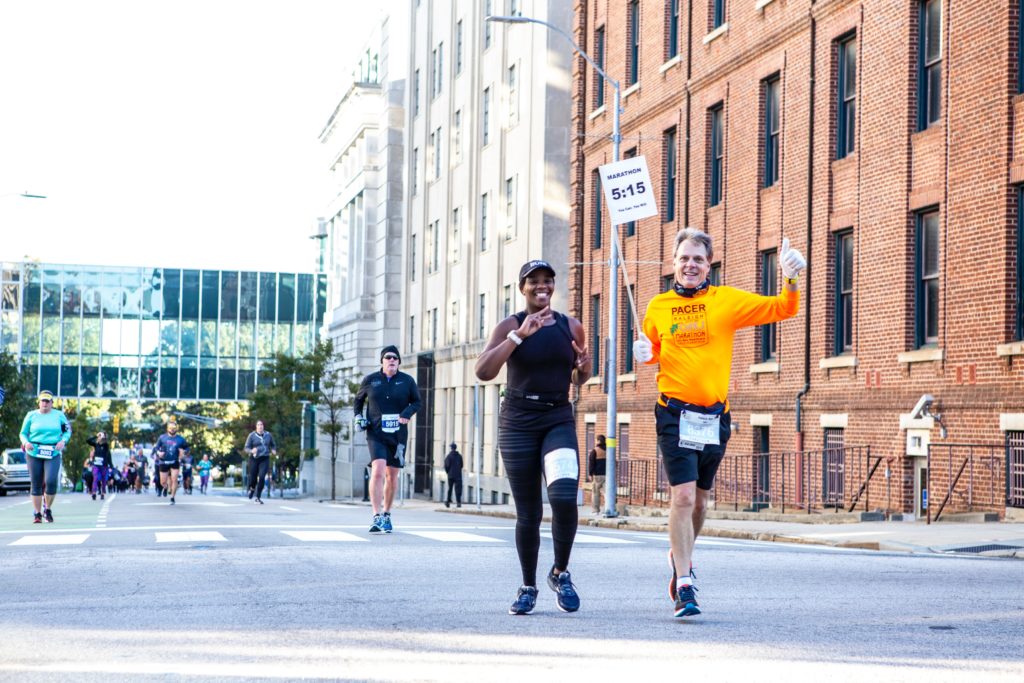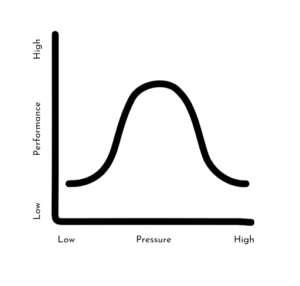Overcome Nerves On Race Day

Race days are full of emotions, such as excitement, anticipation, joy, and even worry. Many endurance athletes may describe themselves as nervous or experiencing nervous energy leading up to the race. How can you overcome nerves on race day?
Take a moment to think about how you feel when you are nervous. Describe how you feel physically, mentally, and behaviorally. For example, you may have experienced some of these coming signs associated with nervousness on race day:
Heart racing, sweating, palms feeling clammy, dry mouth, heavy muscles, inability to focus, upset stomach, and irritability.
For some athletes, once the race begins, these feelings subside. For others, these feelings may continue throughout the race and compromise their overall performance. Understanding these nerves and learning how to apply appropriate coping modalities is essential.
Can Nerves Impact Performance?
The association of these feelings being labeled nervousness can cause them to be heightened and impact performance. Many athletes view these nerves as being harmful to their performance. So how can athletes begin to shift their view of these feelings into something positive? In other words, how can athletes overcome nerves on race day? One way is to recognize that experiencing these nerves is just a form of pressure…and can be a good thing! It is natural to experience a sense of pressure on race days. Race day performances hold high value and evaluation for athletes for numerous reasons. For example, the stakes are higher for some athletes during races as they try to earn a podium spot, qualify for another race, or PR!
The inverted-U hypothesis shows that we need some form of pressure to achieve optimal performance. For example, on one end of the U, an athlete might experience low pressure (such as boredom or apathy), causing their performance potential to be lower. On the other end of the U, athletes might experience too much pressure and stunt their performance. The “sweet spot” of pressure is right in the center of the U, where the athlete experiences these nerves in a manageable way resulting in high performance.

4 Tips To Help Overcome Nerves On Race Day
- Recognize the pressure you experience mentally and physically is your body talking to you and saying it’s ready for race day! Inner dialogue is critical. Begin to recognize the signs of nerves creeping in on race morning, and instead of judging them, accept them and thank your body for being prepared for the race.
- Lean into your pre-race routine. Routines provide consistency and help keep your mind at ease. Stay true to your pre-race routine and embrace it as part of your plan for success.
- Incorporate deep breathing exercises. As you get closer to the start of the race, managing your nerves is essential. Deep breathing exercises are easy to implement in the moment and can give you a sense of being unified with these nerves but not allowing them to take over.
- Shift your focus to the present. You might notice that when the sense of nerves creeps in, you might experience a sense of worry. These “what-if” moments can cause the pressure to heighten. If you experience this, begin to shift to the present moment and focus on the right now.
The main component of managing nerves on race day is to shift your perception of what these nerves mean. As Billie Jean King said, “Pressure is a privilege.” When experiencing these nerves, try your best to reframe your response. Instead of viewing the nerves as negatively affecting your performance, flip the switch in your mind to consider the nerves as your body being prepared and ready for performance!

JoAnne Bullard is a Doctor of Sport and Performance Psychology and a Certified Mental Performance Consultant through the Association for Applied Sport Psychology. She is also a Certified Strength and Conditioning Specialist through the National Strength and Conditioning Association.
She serves as a tenured Associate Professor at Rowan University and is the owner of Absolute Fitness, LLC. Her goal is to provide a holistically applied approach for clients through performance psychology consulting. She has experience working with athletes of all ages, including endurance athletes, in individual and group sessions. Her research areas include mindfulness, performance anxiety, goal setting, coping strategies, and mental well-being of athletes.
She has completed five marathons, numerous half-marathons, and is always looking for her next race.




